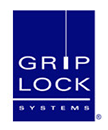Industry News
Welch Allyn Global Headquarters Takes Advantage Of Daylighting With Help From LRC DesignWorks
October 20, 2009
Welch Allyn, a leading global manufacturer of frontline medical products and solutions, decided to improve the image, function, and sustainability of its global headquarters in upstate New York by designing a new expansion that incorporates daylighting. They called on the Lighting Research Center DesignWorks team to review the plans and make recommendations to ensure the daylighting design was effective, comfortable and energy efficient.
"From its onset, the Lighting Research Center has effectively paired advanced science with dynamic design concepts—critically addressing the personal, environmental, and economic needs of contemporary society for each design project it undertakes,” said Russ Leslie, LRC Associate Director. “The LRC has branded its design approach and expertise through its DesignWorks program, where lighting solutions are built around energy-efficient lighting with style.”
Welch Allyn was looking to add a large multi-story atrium to its facility in upstate New York, with a façade shading system and skylights integrated with the electric lighting system to reduce energy use, according to LRC DesignWorks Program Manager Patricia Rizzo, LEED AP, Assoc. IALD. She explained, however, that the original design had its challenges. For example, the building faces southeast and receives intense glare from the morning sun, and it is located in a region with predominantly overcast sky conditions.
By combining science, sustainability and style, LRC DesignWorks partnered with Welch Allyn to enhance the original design to overcome these challenges and create an inviting, comfortable atmosphere that remains true to Welch Allyn’s commitment to reducing energy costs, according to Rizzo.
The multi-story atrium is a signature component of Welch Allyn headquarters remodeling project. By optimizing the solar orientation and geometry of the atrium’s skylights, the LRC DesignWorks team was able to reduce what’s known as the glazing area, which includes any assembly or components of assemblies for transmitting daylight. In addition to increasing design and building expenses, glazing areas can increase a facility’s heating and cooling costs. The new design improved performance and energy efficiency, according to LRC Senior Research Specialist Aaron Smith. Independent energy modeling also indicates the daylighting design will reduce energy costs by $10,000 annually.
“LRC DesignWorks compared alternatives to our proposed design, determined the energy and comfort impact of the daylighting systems, and suggested ways we could best optimize the design to achieve the image, comfort level, and energy savings we intended,” said Welch Allyn Director of Operations Scott Spanfelner. “It was great to work with a design team so well versed in the science of light and sustainability. Their involvement has helped to ensure that our design expectations will be met, and our energy savings exceed what we originally anticipated. We look forward to showcasing the final daylighting design when the project is unveiled in early 2010.”
LRC DesignWorks also added skylights to the design for many of the office areas. The team recommended the use of prismatic skylights that maximize the amount of light entering the space while also diffusing the light to reduce glare, and splayed light wells to help distribute the daylight. By distributing the light, electric lighting in the space could then be outfitted with daylight harvesting equipment that turns off electric lights when sufficient daylight is available. The team also balanced comfort and energy savings by recommending an automatic shade system to mitigate glare and maximize daylight harvesting potential in the building’s perimeter.
According to Spanfelner, the new design also created an equalization of light within the space that hadn’t existed previously.
More on Daylighting and LRC DesignWorks
Daylighting is a key component of green building design and is essential for developing buildings with good energy performance and occupant satisfaction.
The LRC DesignWorks team takes a holistic approach to the daylighting design process and quantifies decisions by comparing a base case design to alternative daylighting designs. An experienced team of LRC lighting scientists and designers works together to examine and consider the customer’s goals and intentions, desired light levels and lighting needs, daylight harvesting options and new technologies, energy costs, materials and sustainability issues, and occupant comfort.
Each project begins with a meeting of the minds—clients and the LRC DesignWorks team discuss design intent and objectives. Clients often have a planned daylighting strategy and are looking to find out the impact of that strategy on the building and whether the design should be optimized to help meet their goals. The original design becomes the base case and is used as a benchmark to compare LRC DesignWorks’ ideas and strategies. Several factors are considered when developing alternative daylighting strategies including climate, location, building configuration, solar access, energy savings potential, and design intent. LRC DesignWorks then uses the latest modeling software to help demonstrate these ideas and their performance to the client.
Additional services offered by LRC DesignWorks include collaborating with integrated electric lighting design and control system specification, as well as post construction case study evaluation.
Click the link below to learn more about LRC DesignWorks
http://www.lrc.rpi.edu/programs/designWorks/aboutTheProgram.asp









































